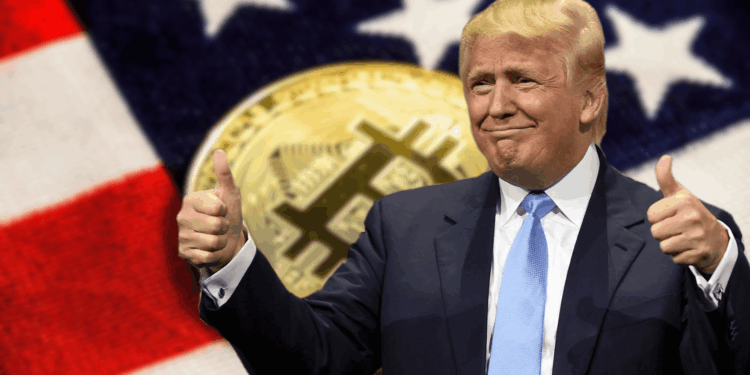- Trump signed an executive order directing regulators to investigate if banks discriminated against conservatives, crypto firms, or gun manufacturers.
- The move targets “debanking” and revives debate over reputational risk policies dating back to Obama-era financial regulation.
- Critics warn the order may politicize financial oversight, while backers say it ensures fair treatment for all bank customers.
President Donald Trump signed an executive order Thursday to investigate whether major banks have discriminated against conservatives, gun manufacturers, and crypto companies. The order targets the practice of “debanking,” where banks close accounts or deny services to specific individuals or industries. Trump specifically accused JPMorgan and Bank of America of debanking him after he left office, though both institutions have denied this.
The order instructs federal regulators to examine whether banks have unfairly discriminated based on political or religious beliefs. Any violations must be referred to the Department of Justice within 120 days. This move could trigger criminal or civil penalties against banks if wrongdoing is found. The banking industry has generally argued it has the right to choose clients unless it breaches laws like the Equal Credit Opportunity Act.
Reputational Risk and Political Backlash
Trump’s order comes in response to both past and ongoing allegations from conservatives who claim banks use “reputational risk” as an excuse to cut off customers they find politically controversial. This practice gained notoriety during the Obama administration’s Operation Choke Point, which pressured banks to avoid working with certain industries like firearms and payday lenders.
Banks have responded carefully to the new political climate, trying to stay neutral while acknowledging regulatory burdens. Bank lobbying groups said the executive order reflects long-standing challenges tied to unclear and expansive supervision. They argue that it’s in their interest to work with as many customers as possible, regardless of political leanings.
Crypto, Guns, and the Political Economy of Debanking
Cryptocurrency firms have been among the most vocal backers of Trump due to debanking fears under the Biden administration. While Biden officials never directly ordered banks to shun crypto, their public warnings discouraged many banks from servicing the industry. This was informally dubbed “Operation Choke Point 2.0” by Trump’s supporters. Gun manufacturers have also faced similar challenges.
As banks distanced themselves from industries deemed high-risk, the backlash intensified. Sen. Tim Scott has introduced legislation to remove reputational risk as a factor in how regulators assess bank safety. The new executive order gives added momentum to that effort.
Personal Grievances Drive Policy Push
Trump has made the issue personal, citing his own experience of allegedly being debanked after 2021. Speaking on CNBC, he said banks “discriminated against many conservatives” and possibly him more than anyone. JPMorgan responded by saying it doesn’t close accounts for political reasons and even agreed with Trump that regulatory reform is needed.
The executive order now sets a clear timeline for regulators to probe past instances of debanking and to enforce a more politically neutral banking system moving forward. Whether this leads to long-term legal change or simply fuels partisan battles over financial services remains to be seen.














